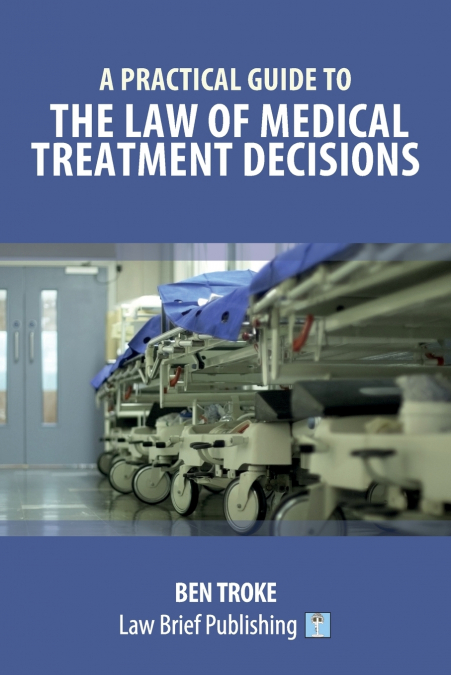
Ben Troke
Decisions about medical treatment can be about life and death, such as withdrawal of treatment or (not) providing CPR. Or about quality of life, liberty and independence, which can be just as important. But the legal (and ethical) framework around these decisions is often misunderstood, leading to distress and disputes at the very worst of times. We have seen this in a few very high-profile cases, but there will have been untold others in private.Should a patient always get what they want, or does 'doctor know best'? When a patient cannot make a decision for themselves, who gets to decide, and how should these decisions be made? What is the role of so-called 'next of kin' (and did you know that there’s actually no such thing)? Can parents insist on treatment for a baby when doctors think it futile? How are disputes in this context resolved and, better yet, how are they avoided? And how can we act now to control what happens to us in future, when we may not be able to decide for ourselves?For our most life-changing decisions, this is a practical guide to the law and how it really works, written to be accessible not only for lawyers, but also for clinicians, patients and anyone concerned about them.All author’s proceeds are donated to the Alzheimer’s Society.ABOUT THE AUTHORBen Troke is a solicitor and a mediator with 20 years’ experience working in health and social care, acting for the NHS and private sector providers all over the country. His particular interest is in decisions about medical treatment and he regularly deals with urgent applications to court in emergency situations. Ben is independently rated as one of the leading practitioners in the country in the Court of Protection. He currently sits on the Law and Ethics Policy Unit of the Faculty of Intensive Care Medicine, and has a decade of experience of sitting on the ethics of clinical practice committee of a large acute NHS Trust. Ben is a partner in the healthcare team at Hill Dickinson solicitors.Demystifying the law is Ben’s passion and he regularly speaks at conferences and provides training, in person and online.